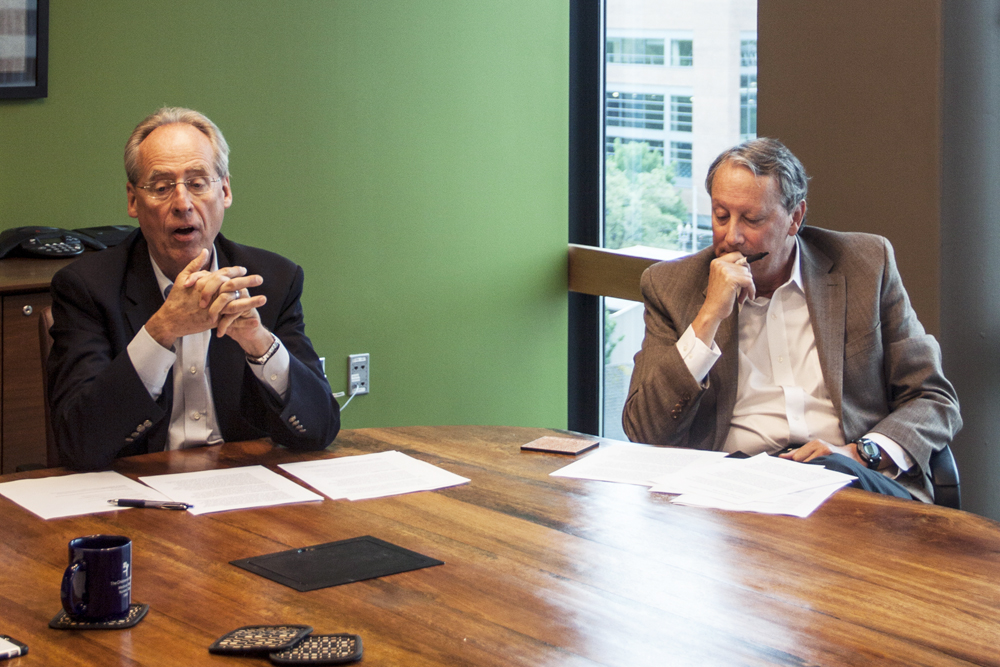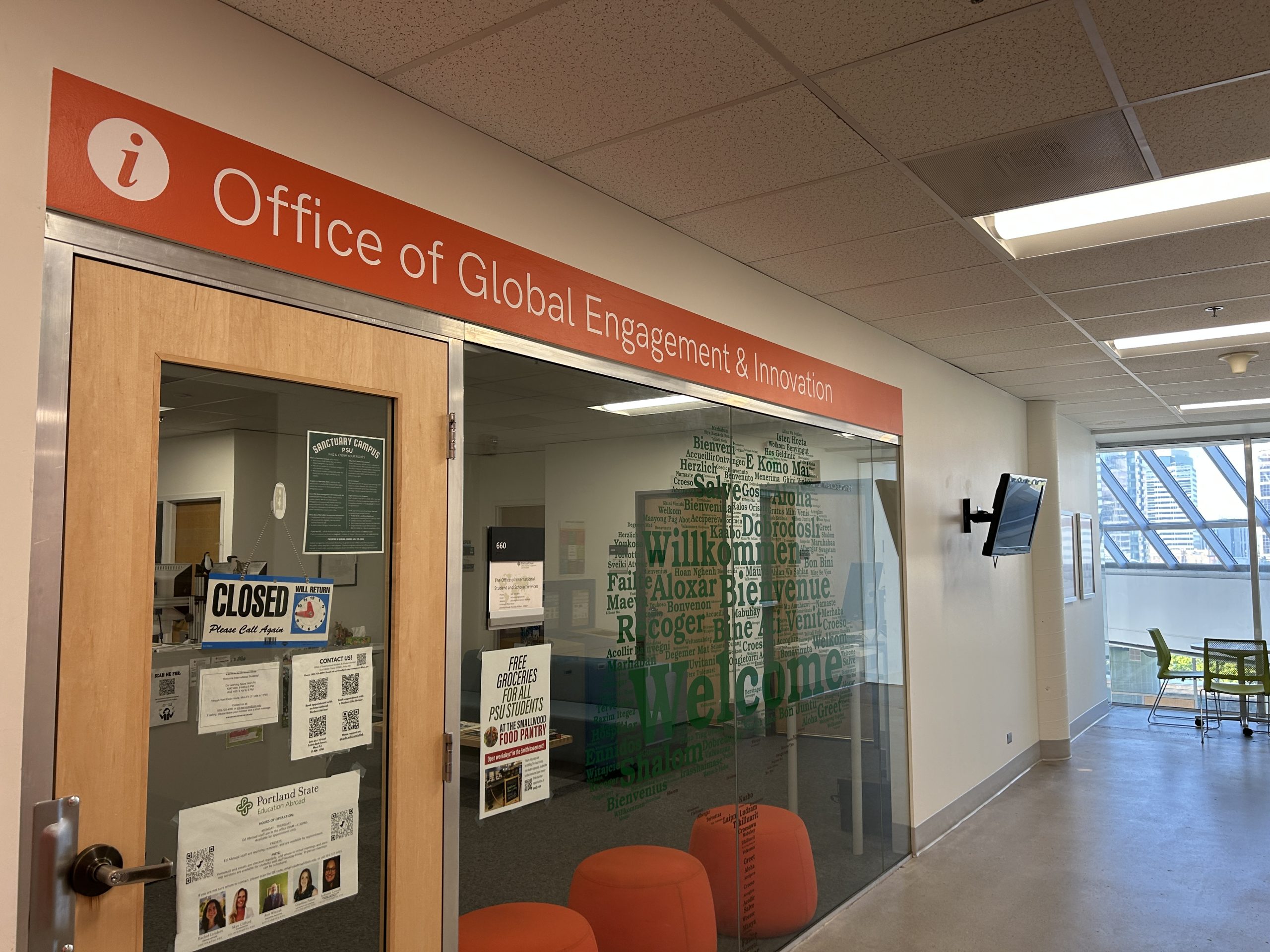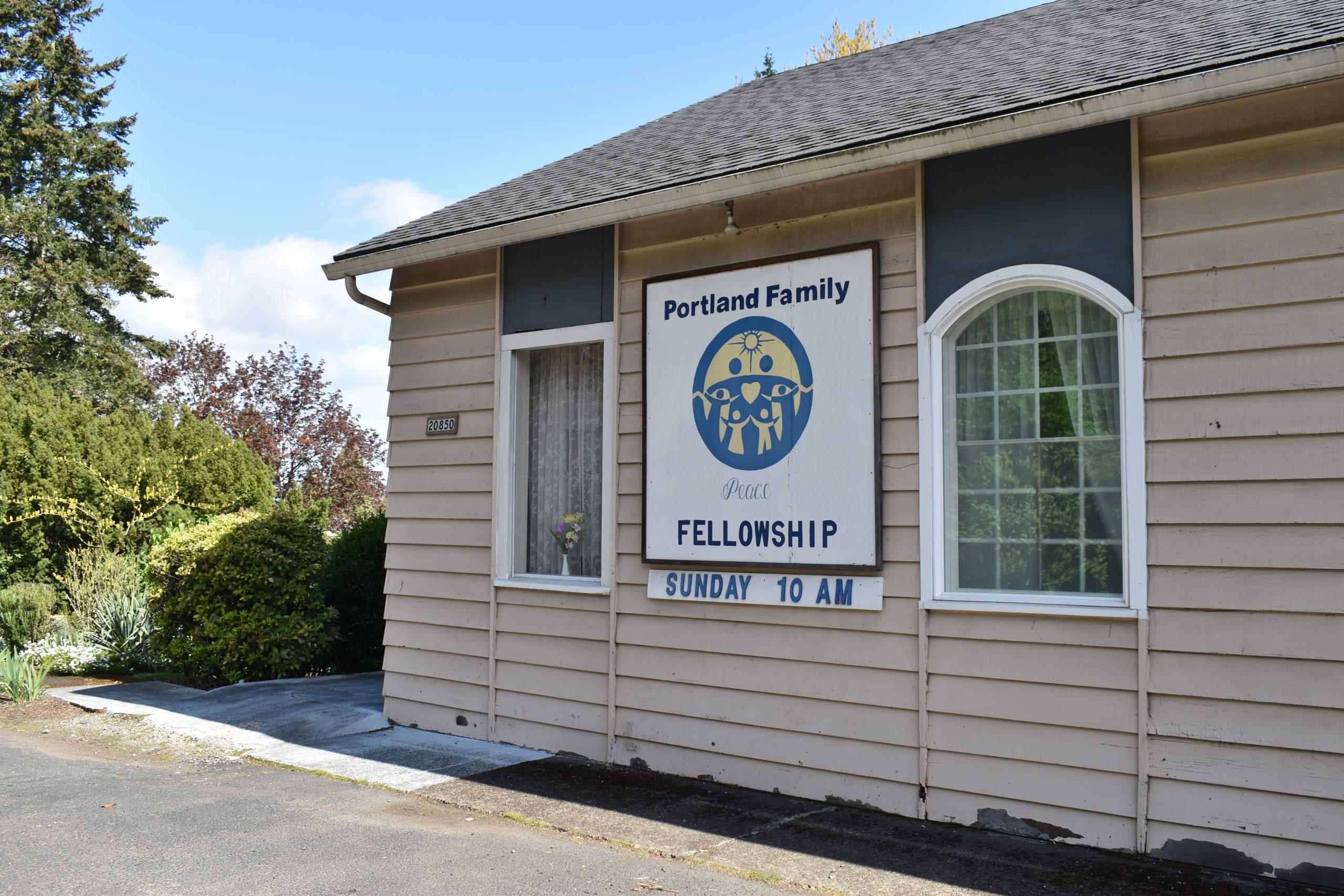The Student Fee Committee is likely to request an $18-per-term increase (8.1 percent) to the Student Incidental Fee, which was $221 for the fall term at 12 credits, due to a $1.2 million shortfall for the year.
On Nov. 22, SFC members met with Portland State University President Wim Wiewel. The initial purpose of the meeting was a meet and greet, which would normally happen sometime in June. At this later stage, new and returning SFC members discussed the more serious topic of the Student Incidental Fee budget. Wiewel offered both his opinion and his perspective on how the university presents its own fee challenges to university students.
Wiewel, whose office ultimately would need to approve the request for an increase, had concerns that students might face both tuition and Incidental Fee increases. He also said he understands the need for more funding and talked further of financial impacts on the school as a whole, pointing to lower enrollment, an expected cut or flatline of state funding and increases in wages on campus.
In terms of reserve funding, Wiewel suggested not using reserves as a one-time fix for shortfalls this year. Every self-supporting operation on campus attempts to create its own reserve funds, but the use of these reserves are geared at maintenance and possible expansion down the road.
On the other hand, Wiewel said, “In principle you don’t want to be building up big reserves in any one part of the university when we are looking for every dime everywhere else.”
The SFC is looking at possibly lowering the Student Building Fee, which runs $45 per term, in an effort to offset the Incidental Fee increase. The Building Fee could run as low as a $180,000 surplus per term, which is required to pay down a debt of more than $4.2 million. An 18 percent cut was discussed, which would be $8 per term, but this was a rough number which was only being explored.
Jemila Mohamed, chair of the SFC, explained that the debt was “taken on over a few decades to cover various aspects of the school.” These are not loans that the current SFC approved, but instead a deficit inherited from past committees. At the current rate, this debt will not be paid off until 2037.
Members are also looking at different fee options including charging a flat rate for students taking over six credits, rather than per credit up to 12, as it works now. Currently, no matter the cost of a student’s Incidental Fee, they receive full use of all benefits it provides.
A recommendation to raise or lower fees must be submitted to the Board of Trustees by Dec. 31.
The SFC oversees the spending of both the Building Fee and the Incidental Fee. The Incidental Fee in total generates $14–15 million per year, which the SFC disburses.
Wiewel praised the members of the SFC for thinking the issue through thoroughly and for their consideration of students with the various options they are exploring.
“[The SFC is] the most impactful committee, because you’re spending real money, and it really makes a huge difference,” Wiewel said. “It’s such an integral part of what goes on at the campus.”






